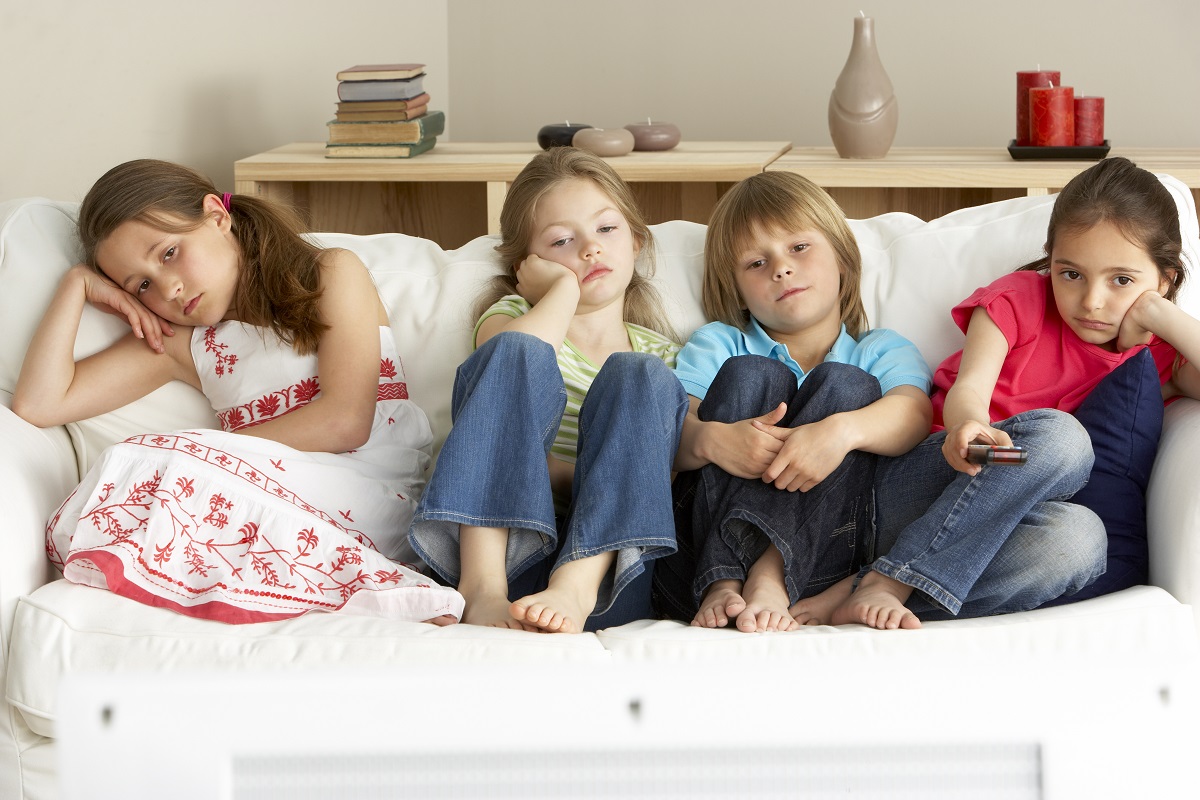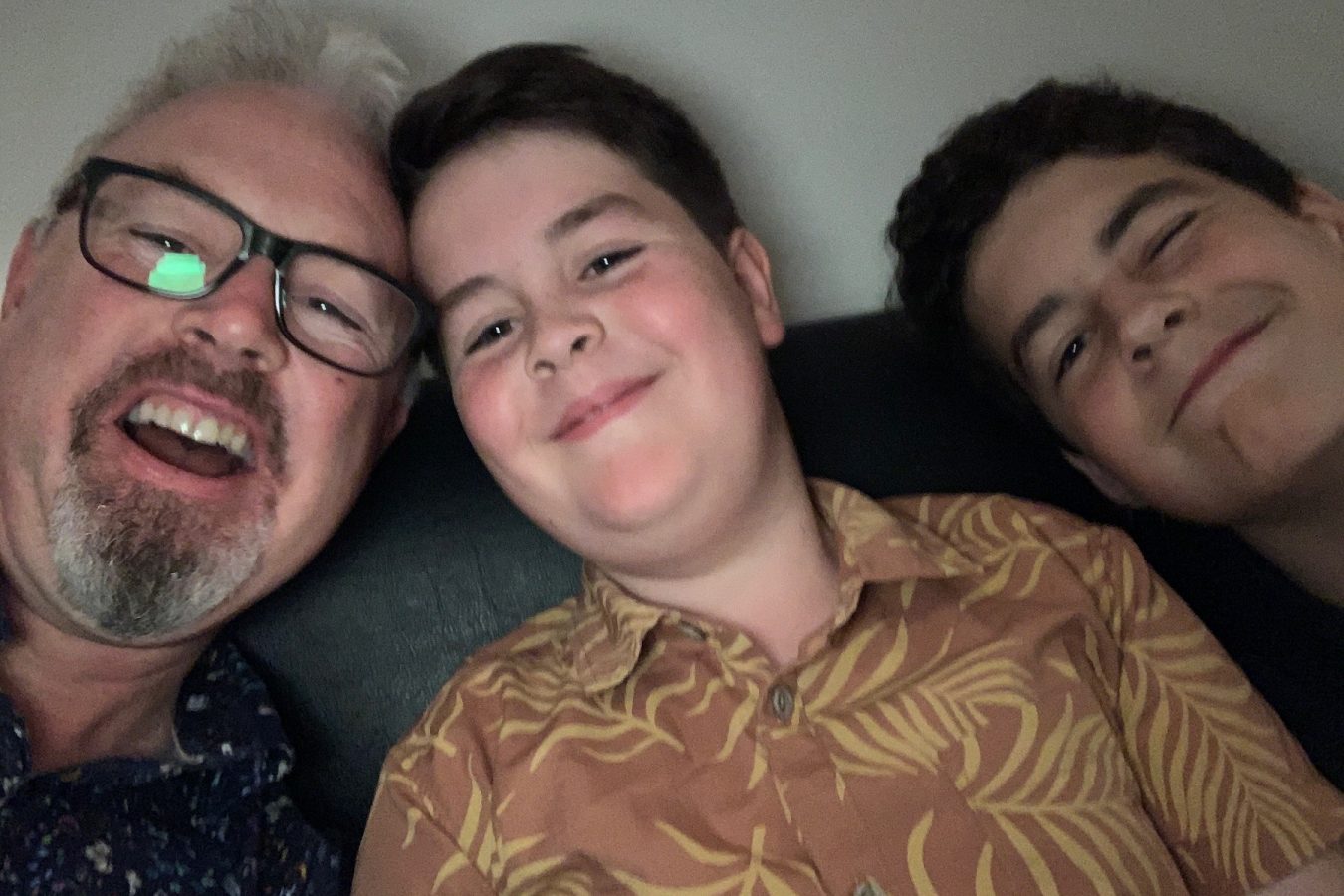
Are your children complaining of being bored? Let it happen - and let them discover the possibilities, writes Sally Kenney.
Boredom is essentially a feeling of having nothing to do. Remember telling a parent you were bored? You’d most likely be met with a list of chores to choose from, reminders of toys and games you’ve not played with for months. ‘It’s a lovely day, get outside’. ‘Only boring people get bored’.
So why is it that when there are so many options, our kids will insist that they are bored and keep coming at us and at us and at us for inspiration, motivation, direction, only to roll their eyes at everything we have the temerity to suggest?
It’s all about meaning.
Boredom is generally experienced as an uncomfortable state, characterised by feelings of dissatisfaction, restlessness and weariness. Andreas Elpidorou, from the Department of Philosophy at the University of Louisville, describes boredom as a lack of contentment with one’s situation. Ultimately, we experience boredom as a motivator to move to something more meaningful, more satisfying.
Why we experience boredom
While we experience boredom as a negative emotion, it is actually motivationally driven. It’s a ‘call to action to change your circumstances’ (Andrews, 2019). Our efforts to ease the discomfort of boredom act in a way that drives us toward something that feels meaningful or significant.
In the absence of boredom, one would remain trapped in unfulfilling situations, and miss out on many emotionally, cognitively, and socially rewarding experiences. Boredom is both a warning that we are not doing what we want to be doing and a ‘push’ that motivates us to switch goals and projects (Elpidorou, 2014).
Some individuals seem to be more prone to boredom than others. Researchers have linked impulsivity and self-control to boredom proneness, with suggestions that individuals with ADHD may experience boredom more than those with strong abilities to self-regulate their behaviour.
Boredom proneness seems to peak from nine to 14 years of age and can be attributed to the developing brain, according to Professor James Danckert from the University of Waterloo in Canada: ‘The theory I have is that as you head into the pre-teen and teenager years, you’re starting to develop adult style cognitive skills … but your world is still massively constrained — by school, by parental control. So you get these skills but can’t fully utilise them.’
There is also the impact of the adolescent task of establishing independence from parents. As the young adolescent embarks on the process of detaching from childhood interests to make space for the new independent version of themselves, there is a letting go of what was once meaningful and comforting. ‘The problem is that emptying oneself of childish attachments creates a void inside’ which can be where the experience of boredom comes from (Pickhardt, 2014).

Why we don't like boredom
At a Character and Connections Day last year, I spoke to Year 7 students about their difficulty sustaining, for even two minutes, an activity that asked them to move away from their peers and sit quietly by themselves. ‘It’s booooooring’, they told me, squirming and whining. They could recognise the discomfort they experienced, and afterwards we reflected on the irrepressible urge they felt to move towards each other, to engage and to connect.
In 2014, a team of researchers in the United States found that two thirds of male and a quarter of female participants preferred to self-administer electric shocks rather than sit alone with their thoughts for 15 minutes: negative stimulation was actually preferable to no stimulation.
As stated above, there is nothing pleasant about boredom. Whilst separate experiences, chronic boredom can look a lot like depression. Young people can find boredom to be an unpleasant experience, and like most unpleasant experiences, do their best to shift away with it as soon as possible.
When bored, we can experience a strong desire to do something different and more satisfying and can struggle to focus our attention. Boredom contributes to a loss of value, significance, or meaning. The world of boredom is, in a sense, not our world: it is not the world that is in line with our projects and desires. Our current situation does not attract us; we do not feel compelled to engage with it (Elpidorou, 2014).
What good is boredom?
Researchers believe that some of our most creative and inventive moments come from boredom. As we strive to alleviate boredom, we are motivated to move towards activities that are more stimulating, meaningful and fulfilling. There is evidence that this can lead us to more pro-social behaviour, reaching out to connect with each other, to reminisce and to offer kindness and support.
When we consider boredom in the context of adolescent development, where boredom emerges out of the void left by the shedding of childhood comforts, we can see the urge to connect with peers as part of this process. We know experientially that as children enter their adolescence, they can be far more motivated to connect with other young people than their families.
This serves an important developmental function as young people are driven to identify the new tribe with which the new independent version of themselves will belong. Bored adolescents might be encouraged to reach out to their friends to see who else is bored.
The key to discovering these silver linings of boredom is to allow the boredom to happen. To not rush to rescue our children from the discomfort of feeling bored. This is a unique time for all of us where the pace of our lives has been significantly and involuntarily slowed right down. With so many things to be done, places to go, etc, boredom can be very quickly alleviated with a change of scene.
But we are now in a situation where these opportunities are limited and we need to find more creative solutions
Managing limitations for activity
The current restrictions we are living with mean two things: Firstly, the way that many of our children relieve their boredom is removed, and the things that we direct them to are removed too. And secondly, there is a strong social narrative around restriction; we are regularly, and with good reason, being reminded of how important it is that we stay home and keep our distance.
The emphasis is on what is not available to us, and that can feel like imprisonment. There are lots of memes doing the rounds suggesting that introverts have been longing for these conditions all their lives, that for some the solitary nature of the current situation suits them to the ground.
But I’ve been speaking to self-identified introverts who are feeling the lack of social contact. There is a big difference between exercising personal preference around socialising and having the possibility largely removed.
Professor Danckert suggests that it is important that we find things to do that use our brains and give us meaning.
So set yourself challenges. Focus on cultivating a skill. Reach out to the people who enter your thoughts. What works is going to vary for different people, so there will be a need for trial and error, and for pausing and reflecting. For better or worse, we have plenty of time for that right now.
About the author
Sally Kenney is School Psychologist at Kilvington Grammar School. This article first appeared on the school’s In the Know newsletter.
Like this post? You can share using the buttons on this page.
Subscribe


